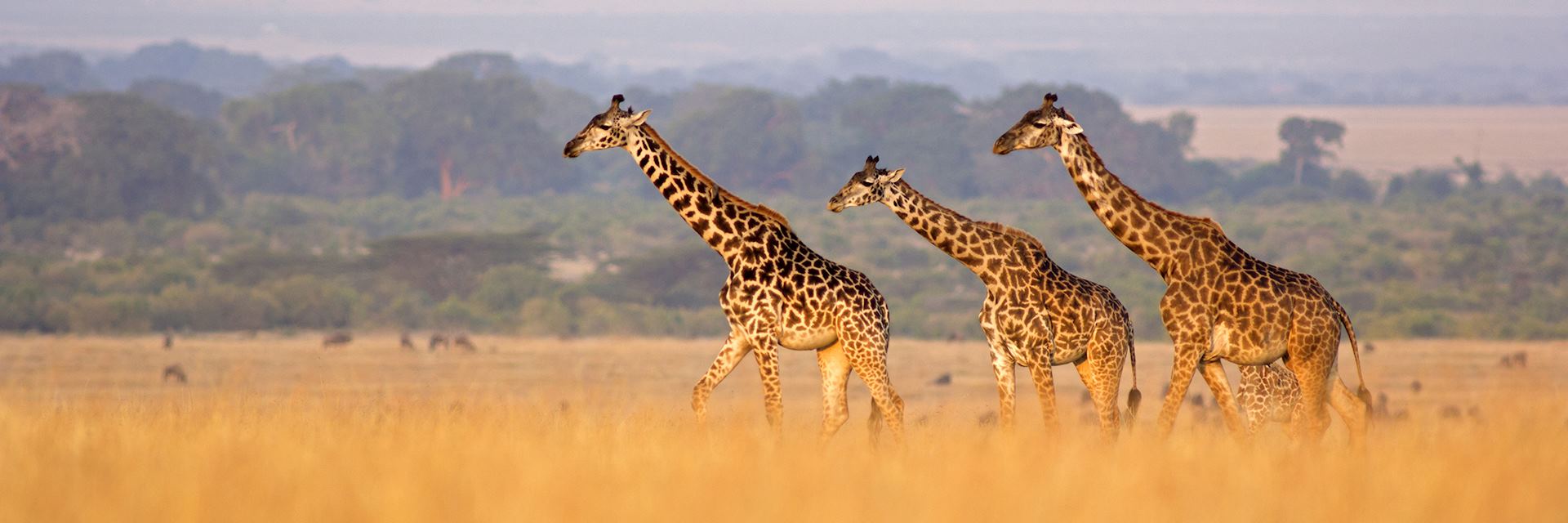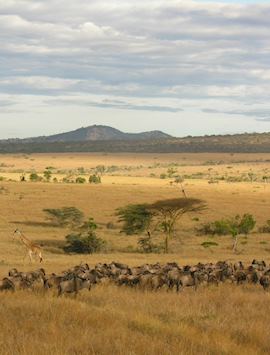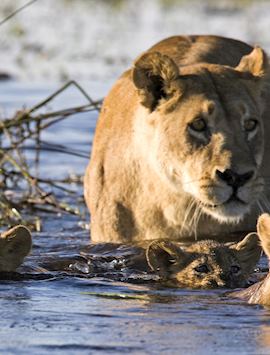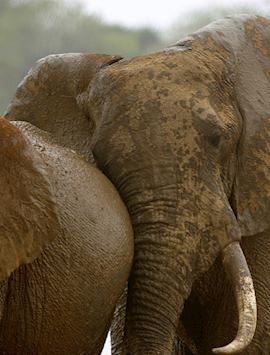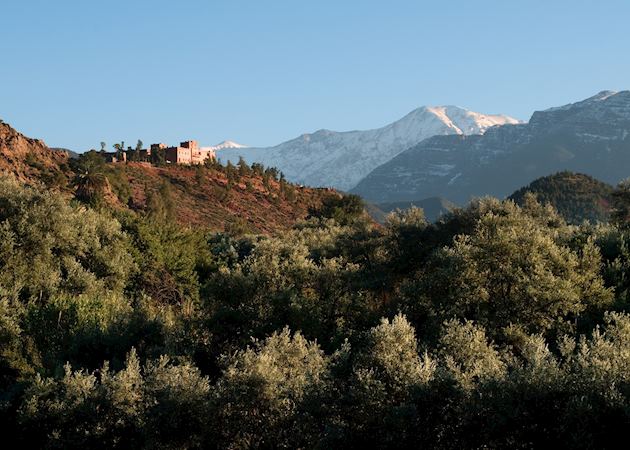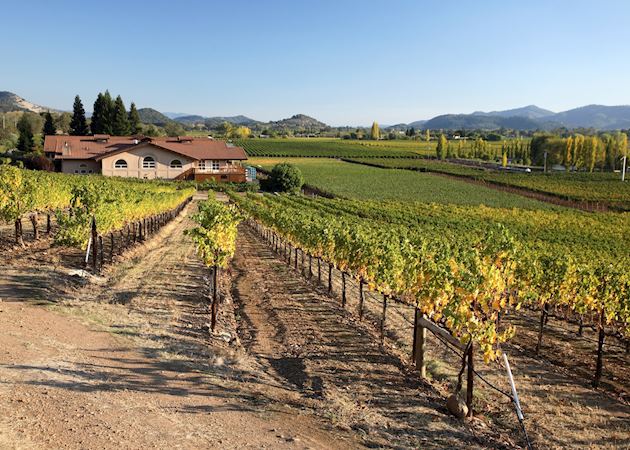Safari camps and lodges have a well-tested daily routine designed around the best times to be out wildlife-watching in the bush. South Africa safari specialist Louise talks us through a typical day.
6am Dawn
Wake-up call: Rise and shine
Daybreak is a magical time to be in the bush. You'll wake up just as the last lion roars fade away and the birds begin to sing. You definitely don't want to skip the sunrise or the first activity of the day.
7am Early morning
Game drive: The adventure begins
After a hot drink and perhaps a homemade rusk (a crunchy southern African biscuit), your guide will take you out on a nature drive. In the cool early hours, when diurnal animals start looking for food and water, nocturnal predators may still be active, too. You could spot something you've always longed to see.
Before each drive, your guide will equip your vehicle with wildlife identification books, drinks, warm blankets and ponchos.
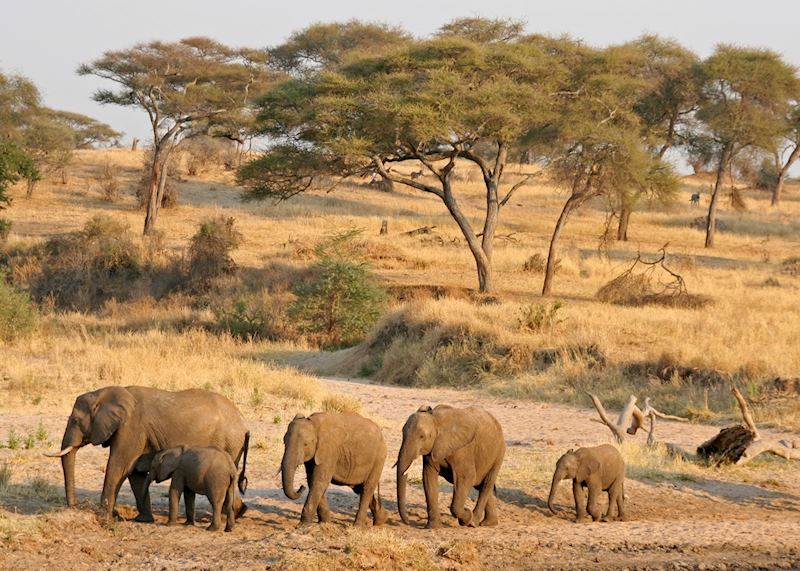
9am Mid-morning
Breakfast or brunch: with all the trimmings
The first meal of the day can be wonderfully elaborate. Often, there'll be a hearty buffet of fruit, yogurt, porridge, cereals, toast, eggs and bacon at your camp or lodge. But on some days, your guide might surprise you by driving to a nearby clearing for a huge bush breakfast, cooked in the open air and served at a table that's been set up and decorated specially. Most dietary preferences can be accommodated with a little warning. Safari chefs can be incredibly inventive.
10:30am Late morning
Relax: Enjoy some time in and around camp
Midday is a great time to stretch your legs with a gentle guided walk close to camp. Alternatively, you could take a siesta or simply enjoy the decks, lounge or pool. It's nice to allow yourself a little alone time. Many camps and lodges overlook beautiful shady trees, grazing areas, rivers or waterholes. Keep your binoculars to hand, as animals may arrive to drink or cool off in the heat of the day. I've even seen elephant stroll up to drink from a plunge pool.
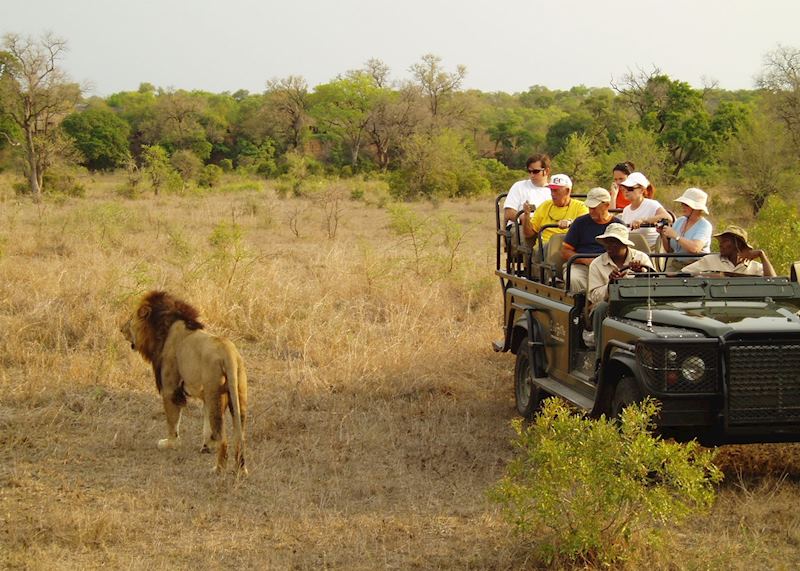
3pm Mid-afternoon
High tea: The excitement builds
Just as the heat begins to subside, the staff may set a table with light refreshments, charcuterie or homemade cake with hot or cold drinks. You're sure to feel excited when your guide briefs you on the plan for the rest of the day.
It's wise to bring everything you need for your next activity with you to tea. Your group may decide to leave promptly, to follow up a reported wildlife sighting or to catch the best light.
4pm Late afternoon
Game drive: The Golden Hours
When the air cools, birds and animals emerge and become active once more. Toward sunset, the light turns golden, ideal for photography. In a reserve where night drives are permitted, you'll pause at a scenic lookout, enjoying drinks and snacks as the sun nudges the horizon. After that, you'll slowly head back to camp, scanning for nocturnal species with a spotlight. A breezy drive in the moonlight, stargazing as you go, is my preferred time of all.
7:30pm Evening
Drinks and dinner: A time for campfire tales
Back at camp, you'll shower and prepare for dinner — sometimes served at a communal table, hosted by your guide. Later, as you drift off to sleep, you may catch the best sounds of all: baboons barking, hyena yipping or the thrilling night-time calls of lion and leopard.
Always check baggage rules, especially for short hops in light aircraft — some African airlines have strict weight limits and won't carry cases, just soft bags.
Seven packing essentials you shouldn't forget
Camera
For wildlife shots, bring the best quality gear you can afford, preferably with a zoom lens.
Sunblock and layers
Some safari vehicles are open-topped, so it’s wise to wear a high factor sunscreen and a hat. During the southern winter, pack a fleece, warm hat and gloves.
Walking shoes
For bush walks, lightweight shoes are generally more comfortable than sandals or boots.
Binoculars
Bring a pair to ensure you don’t miss a thing when your guide points out wildlife.
Insect repellent
This is worth bringing, even if you’re not visiting a malarial area during your trip.
Medicines
Camps stock the basics, but you should always pack any prescription drugs and anti-malarials you may require.
Water bottle
Many camps now supply refillable bottles to help reduce plastic waste, but bring one if you have your own.
Trip ideas for safaris in Africa
Start thinking about your experience. These itineraries are simply suggestions for how you could enjoy some of the same experiences as our specialists. They’re just for inspiration, because your trip will be created around your particular tastes.
View All Tours in AfricaWas this useful?


